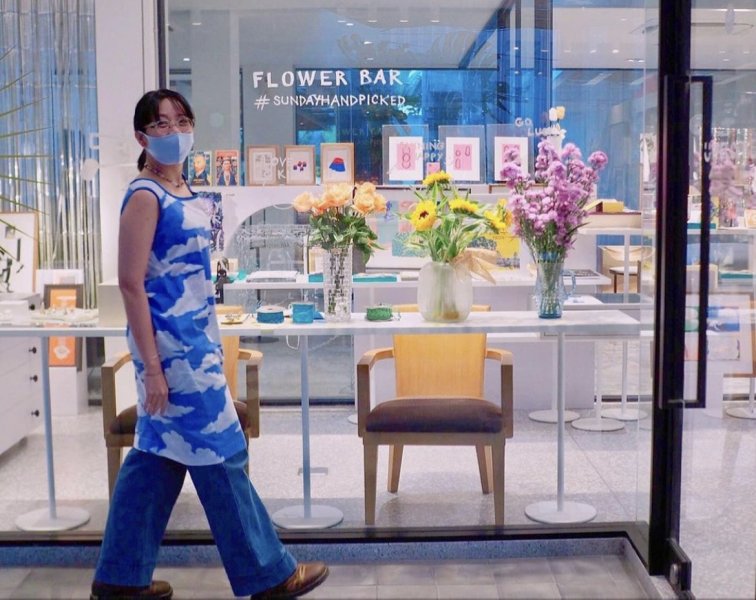The owner of the old-school Reno Hotel talks art, history, and adaptation
“We were born in the ’60s and have seen Bangkok develop into a vibrant city. Our hotel is a reflection of that change.”
Established in 1963, the Reno Hotel was once the stomping grounds of American GIs and other foreign guests visiting the fast-growing Siam area. The old hotel just got a fresh coat of paint, transforming it into an art-focused boutique. Owner Yuwalee Leenutaphong sheds light on the new direction for the long-standing hotel.
The hotel has been operating for over 58 years in Kasemsan Soi 1. Back in the day, it was a quiet soi with only two hotels, and we owned both—Reno Hotel and LIT (formerly the Star Hotel). After we renovated the LIT ten years ago, we felt it was time for Reno Hotel to be renovated, too, so we did that in 2018. Everything in this alley, from the lifestyle to the people, was evolving, so we felt we needed to evolve as well.
We were born in the ’60s and have seen Bangkok develop into a vibrant city. We’ve also witnessed the transformation of old, quiet Siam into a fashion capital and lifestyle hub that attracts people from around the world. Our hotel is a reflection of that change.
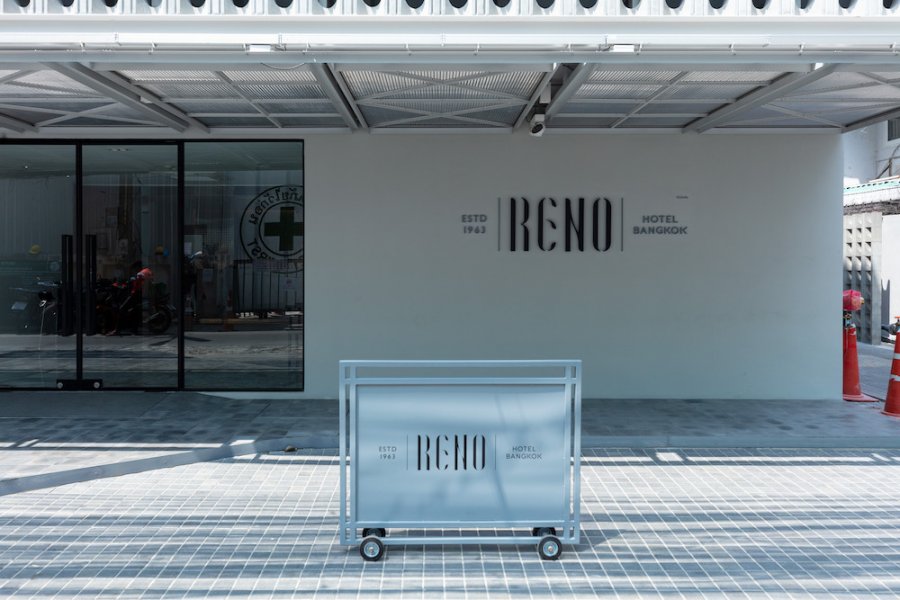
We believe art should be accessible to everyone, so we decided to infuse the whole hotel with art. The architecture was designed in a way that lets light enter throughout the day, making it an ideal backdrop for photography. And we kept everything minimal in the hotel. From the furniture to color selection, every piece here has been designed carefully [to achieve that].
In addition to the design, we’ve introduced two new art spaces within the hotel. There’s Saratta [an art space and store selling limited-edition prints and artwork], and we joined hands with the Neighborhood Specialty Store, which houses art supplies and paintings from local and foreign artists.
We also welcome artists all year and will soon be hosting a collaboration with Bangkok Design Week along with Bow, the founder of Saratta, and local artist Tuna Dunn.
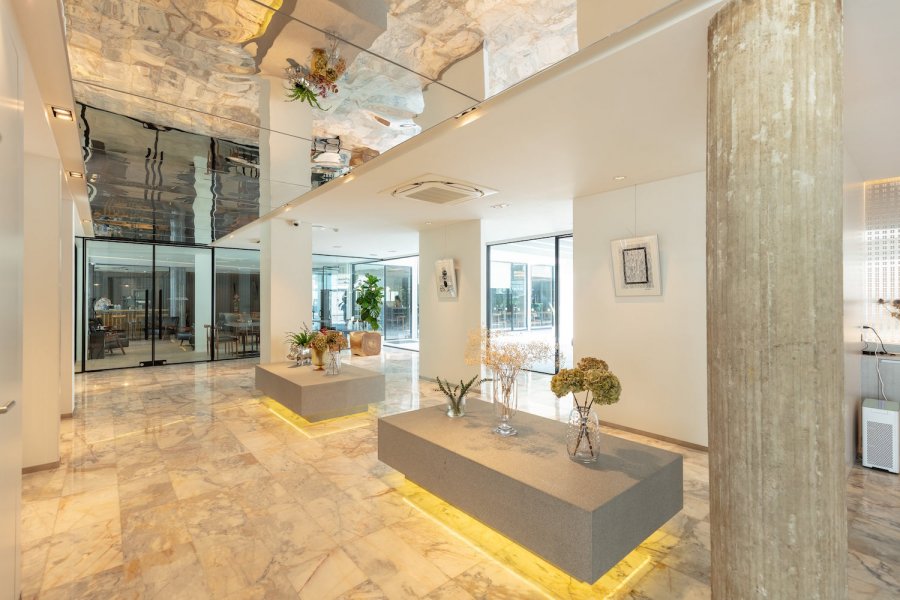
We’ve renovated it to resonate with younger crowds, but the fond memories of the hotel and its 58-year-old structure remain. We wanted to preserve the charm from the ’60s to give it a vintage feel. For example, the staircase still has the original railing.
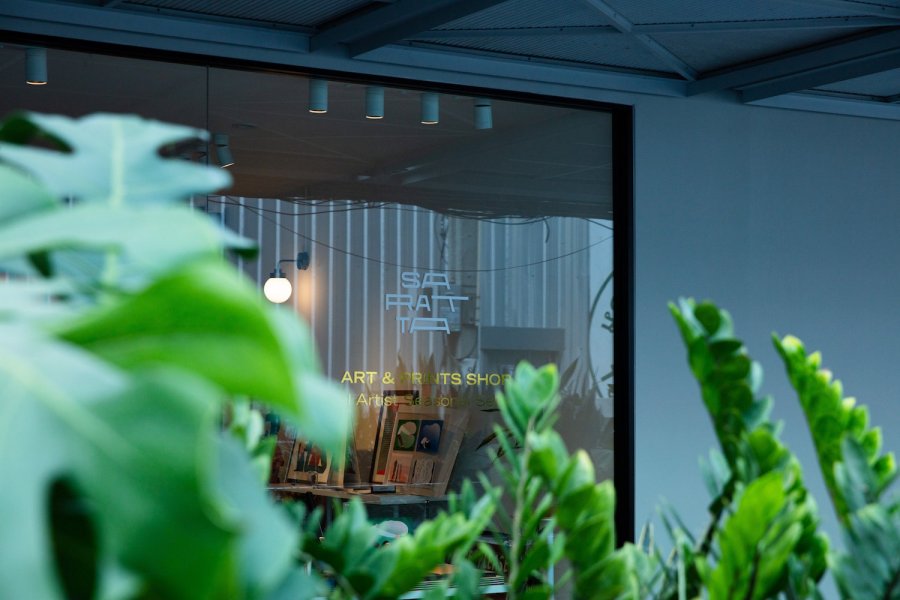
It’s a small space selling pieces from artists like The Archivist, Nutdao, Pamda Bure, Haptic Editions, Pelagan, Vallada Vintage, Pryn Parfum, Kong Kiat, and many others. The artwork here will rotate based on the mood and tone of the season. We want to ensure that customers will always get to see new art each time they visit.
When we were deciding on the concept, a coffee shop was an essential part of the plan, because cafe culture in Bangkok is growing. We’ve carefully selected our coffee beans from Doi Saket in Chiang Mai. The beans won first prize in the washed process category from the Thailand Coffee Fest 2020. But we’ve tried to make prices affordable, too.
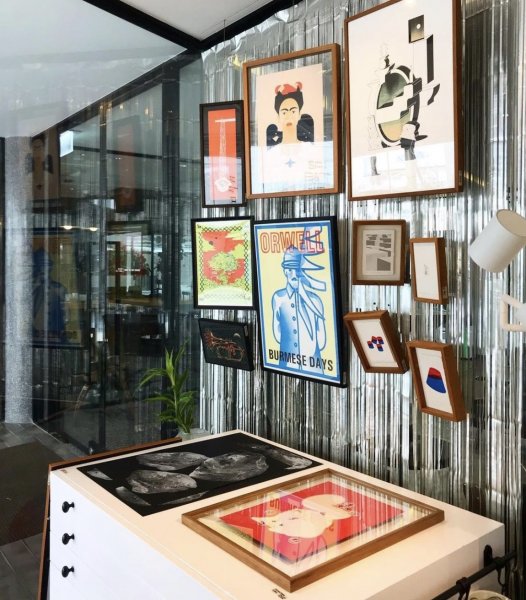
This was the result of the crisis last year when the pandemic hit. Most of our customers tend to be foreigners. Despite offering promotional discounts, we weren’t getting many bookings, so we decided to rent rooms as studios for photography. Now, a lot of brands are approaching us to rent our space for photoshoots, because we have good light and composition here. As a result, more people know about Reno Hotel.
We think that if our hotel is able to attract more visitors, the soi will also get more attention. We want to work with all the other local businesses here to bring Kasemsan Soi 1 into the limelight as an art hub.
